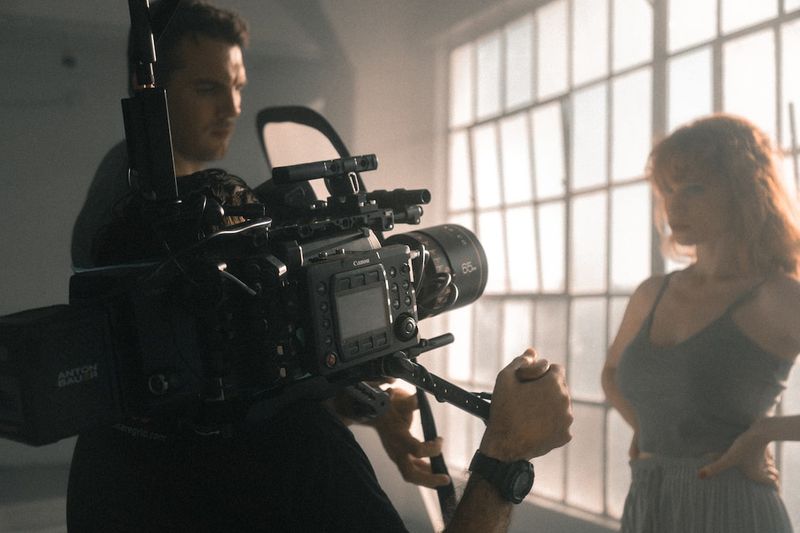Tommy Jessop Goes To Hollywood: Breaking Barriers in the Film Industry
T ommy Jessop, known for his role in the crime drama Line of Duty, is no stranger to breaking barriers in the entertainment industry. As an actor with Down’s syndrome, he has faced challenges and discrimination that have limited his opportunities. However, he remains determined to pursue his dreams and create change in the industry.
A Charming and Insightful Documentary
In the documentary, “Tommy Jessop Goes to Hollywood,” we follow Jessop and his older brother, Will, who is a film-maker, as they embark on a journey to turn Tommy’s dream of playing a superhero in a movie into reality. The documentary is not just about Tommy’s aspirations but also raises important questions about inclusivity and the ethics surrounding Down’s syndrome prenatal screening tests.
Jessop’s confidence and can-do attitude are evident throughout the documentary and give it a refreshing and uplifting tone. He is not looking for sympathy but rather a fair chance to showcase his talent and abilities. Despite his critically acclaimed performance in Line of Duty, Jessop reveals that work has been scarce for him since the show aired. His mother, Jane, emphasizes the importance of giving Tommy the same opportunities as any other actor, without being sidelined because of his disability.
Writing His Own Story
To attract the attention of Hollywood bigwigs, Jessop receives advice from industry colleagues that he should write his own story. He comes up with a superhero film concept in which the hero, played by himself, faces a villain who aims to eliminate people with Down’s syndrome. This storyline is not only a creative endeavor but also a way to spark conversations about the value and inclusion of individuals with disabilities in society.
In his journey, Jessop meets with various industry professionals and receives guidance from famous faces like Zack Gottsagen, who also has Down’s syndrome and starred in the critically acclaimed film The Peanut Butter Falcon, and Kit Harington from Game of Thrones. These interactions demonstrate the support and encouragement Jessop receives from others in the industry who believe in his talent.
Family, Support, and Overcoming Challenges
The documentary also explores the relationship between Tommy and his family, particularly his brother Will and their mother Jane. While Jane’s involvement sometimes appears overbearing, the documentary handles it with humor and care. It delves into the complexities of supporting a loved one with a disability while also empowering them to stand on their own.
During their trip to Los Angeles, the brothers visit Neve Campbell, known for her role in the Scream franchise, and JJ Feild, who has appeared in films like Captain America. Feild emphasizes the importance of self-belief, stating that if Tommy truly believes in his project, it has the potential to succeed.
The Dream Continues
As the documentary leaves us hanging, waiting to discover the outcome of Tommy’s Hollywood producer meeting, it becomes evident that Jessop’s superhero story is far from over. His unwavering confidence and determination may just be enough to propel him towards success in the film industry.
The documentary “Tommy Jessop Goes to Hollywood” shines a light on the challenges faced by individuals with disabilities in the entertainment industry and the importance of inclusivity and equal opportunities. Tommy Jessop’s journey serves as an inspiration to aspiring actors and advocates for disability rights, proving that dreams can be achieved with persistence, talent, and a fighting spirit.
Advice for the Film Industry
The film industry must recognize and address the lack of opportunities for actors with disabilities. It is crucial to dismantle barriers and provide equal representation for performers with diverse backgrounds and abilities. Casting decisions should prioritize talent and suitability for a role, rather than perpetuating stereotypes or overlooking individuals due to their disabilities.
Furthermore, investing in diverse and inclusive storytelling can lead to powerful narratives that challenge societal norms and foster empathy and understanding. This not only benefits audiences but also contributes to a richer and more authentic representation of the world we live in.

<< photo by Jakob Owens >>
The image is for illustrative purposes only and does not depict the actual situation.
You might want to read !
- Editorial Exploration: Exploring the Impact and Significance of Line of Duty’s Tommy Jessop, an Actor with Down’s Syndrome
Title: Unveiling the Remarkable Journey of Tommy Jessop: Line of Duty’s Trailblazing Actor with Down’s Syndrome
- Kate Winslet’s Pyjama Performance: A Delightful Surprise at Camp …
- Unexpected Meeting: CBeebies Presenter Gyasi Shares His Amazing Encounter With Kate Winslet
- Hollywood Legends Unite: Brooke Shields, Michael Douglas, Sharon Stone, and More Grace the Silver Screen
- Rising Star Sha’Carri Richardson Claims Global Triumph in World Championship
- “Justice Served or Excessive Punishment? Examining the Controversial Sentencing of a 19-Year-Old Woman”
- Logan Paul Walks out of Oppenheimer: A Closer Look at Celebrity Stunts and Corporate Responsibility
- Logan Paul Walks Out of ‘Oppenheimer’: A Clash of Egos or Professional Integrity at Stake?
- Deconstructing Andrew Garfield’s Phenomenal Performance in ‘The Social Network’
- The Failed Fright: Disappointing Horror in The Texas Chain Saw Massacre Game




